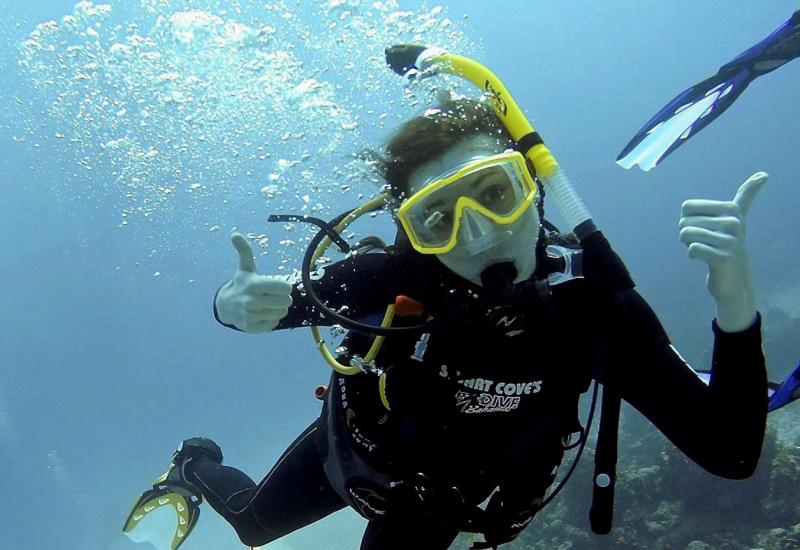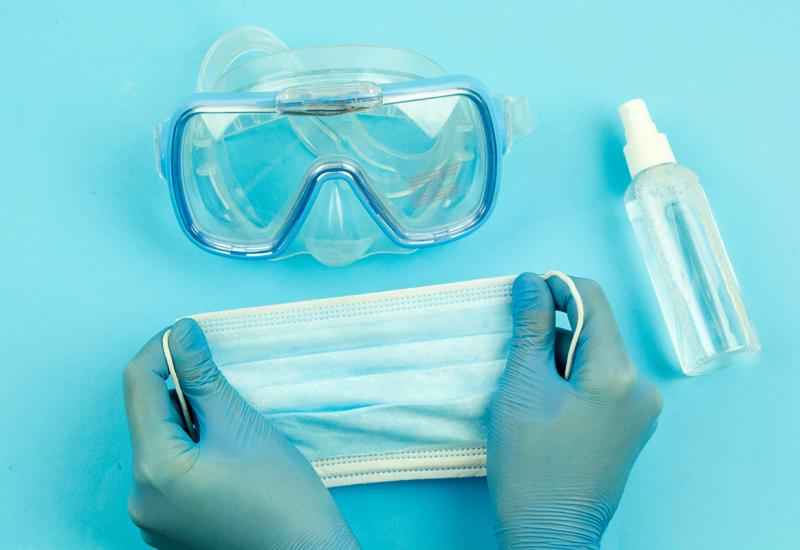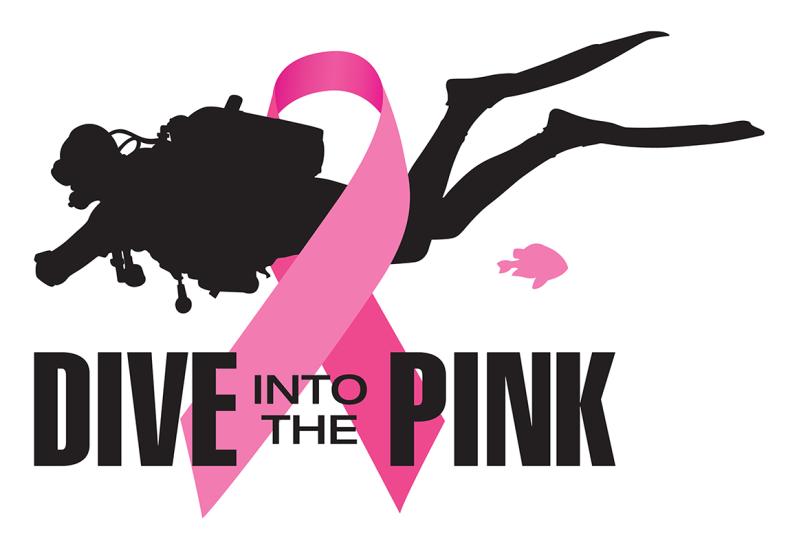Ask DAN: Mood-Altering Meds

Scuba Diving Health | Mood-Altering Meds
Little by little, the medical community is gaining ground on researching and understanding mental and emotional disorders. We know more about them than ever before, and as new treatment options become available, more and more people once blocked from diving are finding their way into the sport. Since many of the available treatments involve medication, the DAN Medical Information Line has, over the past few years, seen a significant increase in questions about diving while taking mood-altering medications. While this is one area in which it's important for divers to be advised on a case-by-case basis, there are general considerations for each of these medications. Let's take a look at some of the major mental disorders, the more common medications used to treat them and the possible diving implications.
Depression
Tens of millions of people in the U.S. alone have experienced depression in one form or another. Some get it for a single, finite period of time, while others fight a lifelong, debilitating battle. The symptoms and severity encompass a wide range, including prolonged sadness, unexplained crying spells, significant changes in appetite or sleep patterns, irritability, anger, excessive worry, agitation, anxiety, an inability to concentrate or make decisions, unexplained aches and pains, and suicidal thoughts. There is no singular cause. Depression can appear after a traumatic or otherwise definable event (such as divorce or pregnancy), and other times, it's the result of a biological chemical imbalance.
Diving Concerns
Any condition that affects your judgment should be closely monitored by a medical professional to ensure you don't put yourself in a position where you might make a regrettable decision. That said, diving--just like any type of exercise that's relaxing, fun and encourages social interaction — can actually help to pull your head out of the doldrums.
Depression Meds and Diving
SSRIs (selective serotonin reuptake inhibitors; Zoloft, Celexa, Prozac) Drowsiness is a possible side effect that can influence the safety of the dive. SSRIs can also cause increased susceptibility to bruising or bleeding, meaning normally unremarkable injuries like minor barotraumas to the ears or sinuses, or bumps and bruises incurred on a dive boat, can become more serious on antidepressants. There is also evidence that, in high doses, SSRIs may cause seizures, which could lead to drowning if they occur during a dive.
MAOIs (monoamine oxidase inhibitors; Mardil, Parnate, Marplan) Possible side effects include dizziness and drowsiness. Dizziness typically comes from standing up too quickly from a reclined position (called orthostatic hypotension). And since these medications affect a chemical reaction in the brain at ambient pressure (on land), the side effects can sometimes be more pronounced underwater due to the increased partial pressure of nitrogen or nitrogen narcosis at depth.
TCAs/HCAs (tricyclics/tetracyclics/ heterocyclics; Elavi, Pamelor, Remeron) Dizziness, drowsiness, and blurred vision can occur with TCAs/HCAs. Any medication that affects concentration, decreases alertness or impairs decision-making should be used cautiously while diving.
Other challenges these medications present to divers are side effects that mirror decompression illness, including weakness, dizziness, numbness and tingling, visual disturbances and lack of coordination. If you experience any of these symptoms post-dive, never assume it's a reaction to medication; get evaluated by a medical professional.
Attention Deficit Disorder (ADD)/Attention Deficit Hyperactivity Disorder (ADHD)
ADD is a brain disorder with symptoms that generally include an inability to concentrate or sustain attention; basically mental hyperactivity. ADHD presents as physical hyperactivity, and sufferers can experience both at the same time.
Diving Concerns
At its worst, ADD/ADHD can be so pronounced that it prevents the diver from learning the skills needed to dive safely, or from paying appropriate attention to a dive briefing. Hyperactivity could also lead to poor judgment underwater that gets the diver into dangerous situations. However, ADD/ADHD is usually not that intense. Fitness to dive is best assessed by a mental health professional who looks at the diver's social, school, athletic and job performance.
ADD/ADHD Meds and Diving
Three drugs currently in use are Ritalin (methphenidate), Dexedrine (dextroamphetamine) and Strattera (atomoxetine). These medications are powerful stimulants that would make most people "wired." However, they have a paradoxical calming effect on patients with ADD/ADHD. The effectiveness of these treatments tends to lessen as patients get older. Little is known about the effects of diving on ADD/ADHD medications, as no tests have been done to determine interactions between high partial pressures of nitrogen and the medications.
Anxiety Disorder
Anxiety is a normal human emotion. Associated with the release of adrenalin, fear or anxiety can help us avoid or escape from dangerous situations, or it can spur us to deal with a threat — i.e., the "fight or flight" reaction. However, sufferers of anxiety disorder feel an abnormal amount of anxiety even in normal situations, experiencing feelings of apprehension and dread without an identifiable stimulus. Anxiety can also be accompanied by tiredness, tension, restlessness, loss of concentration, irritability and insomnia, and the physical effects of anxiety can range from irregular heartbeat, sweating, muscle tension and pain, heavy, rapid breathing, dizziness, faintness, indigestion and diarrhea--all produced by increased adrenalin levels.
Diving Concerns
The most intense form of anxiety is panic, a sudden, powerful surge of fear. Panic can cause wholesale flight from the immediate situation, a reaction that is especially dangerous for scuba divers. For a diver with anxiety disorder, it would be easy for a minor issue like a flooded mask to spark a full-blown panic, often resulting in an emergency ascent, a frantic grab for someone's air supply or a lack of concern for the safety of others. Any diver who experiences and acts on panic at depth is subject to near drowning, lung overexpansion injuries and death.
Anxiety Meds and Diving
The most commonly prescribed medications for anxiety disorders are benzodiazepines like Xanax, Valium and Klonopin. Potential side effects include drowsiness, dizziness and confusion, all of which can impair a diver's ability to learn and follow safe diving practices.
Bipolar Disorder
This is actually a combination of mood disorders--hence the name bipolar, which means two poles, or opposite ends — that manifest in periods of mania (abnormally elevated moods) and periods of deep depression. The antiquated term for this condition is "manic-depressive disorder." Some individuals can experience mixed episodes in which both mania and depression are present, but most patients will have periods of normal moods that separate the cycles of mania and depression. When the cycles occur close together this is known as "rapid cycling." Left untreated in extreme cases this can lead to delusions, hallucinations and thoughts of suicide.
Diving Concerns
A diver in a manic state will often take unnecessary risks and follow irrational impulses, and a diver in a severely depressed state may have little concern for his or her own safety. Bipolar disorder can also lead to sleep problems, inattention, improper nutrition and hydration, and all these effects can interfere with proper dive preparation and expose the diver to increased risk.
Bipolar Meds and Diving
Of course, medication can greatly assist sufferers of bipolar disorder, and many patients stabilized by medical care can go diving. Some of the commonly prescribed medications for bipolar disorder are the same as those prescribed for depression and anxiety. Others include: Lithobid, Lamictal, Zyprexa and Risperdal. Possible adverse side effects for divers include tiredness, dizziness, insomnia, nervousness, restlessness, nausea, vomiting, constipation, dry mouth, runny or stuffy nose, increased salivation, weight loss or gain, increased heart rate and low blood pressure.
It's important to remember that any medication capable of altering a person's mood or thought processes is clearly potent and must be used with caution. Nearly all such products carry warnings about use in hazardous situations — driving, operating equipment and so forth — and diving is certainly no exception. The interaction between the physiological effects of diving and the pharmacological effects of medications are only in the earliest stages of studies. Obviously, mental disorders don't always preclude you from diving, but some certainly do, so it's imperative to have a honest and thorough discussion with your doctor ahead of time. If medication is prescribed as part of your treatment, it's important to know its effects on you personally before entering the water. If you need help finding a doctor familiar with your condition, treatment and the challenges diving will present to both, call DAN, and we'll point you in the right direction.
What Is DAN?
Divers Alert Network (DAN) is a 501(c)(3) nonprofit medical and research organization dedicated to the safety and health of recreational scuba divers.
For diving emergencies, call the DAN 24-Hour Diving Emergency Hotline: (919) 684-4DAN (collect calls accepted).
For nonemergency questions, call the DAN Medical Information Line at (919) 684-2948.
Additional information can be found at www.diversalertnetwork.org.
---
Scuba Diver photo from Shutterstock.com

Little by little, the medical community is gaining ground on researching and understanding mental and emotional disorders. We know more about them than ever before, and as new treatment options become available, more and more people once blocked from diving are finding their way into the sport. Since many of the available treatments involve medication, the DAN Medical Information Line has, over the past few years, seen a significant increase in questions about diving while taking mood-altering medications. While this is one area in which it's important for divers to be advised on a case-by-case basis, there are general considerations for each of these medications. Let's take a look at some of the major mental disorders, the more common medications used to treat them and the possible diving implications.
Depression
Tens of millions of people in the U.S. alone have experienced depression in one form or another. Some get it for a single, finite period of time, while others fight a lifelong, debilitating battle. The symptoms and severity encompass a wide range, including prolonged sadness, unexplained crying spells, significant changes in appetite or sleep patterns, irritability, anger, excessive worry, agitation, anxiety, an inability to concentrate or make decisions, unexplained aches and pains, and suicidal thoughts. There is no singular cause. Depression can appear after a traumatic or otherwise definable event (such as divorce or pregnancy), and other times, it's the result of a biological chemical imbalance.
Diving Concerns
Any condition that affects your judgment should be closely monitored by a medical professional to ensure you don't put yourself in a position where you might make a regrettable decision. That said, diving--just like any type of exercise that's relaxing, fun and encourages social interaction — can actually help to pull your head out of the doldrums.
Depression Meds and Diving
SSRIs (selective serotonin reuptake inhibitors; Zoloft, Celexa, Prozac) Drowsiness is a possible side effect that can influence the safety of the dive. SSRIs can also cause increased susceptibility to bruising or bleeding, meaning normally unremarkable injuries like minor barotraumas to the ears or sinuses, or bumps and bruises incurred on a dive boat, can become more serious on antidepressants. There is also evidence that, in high doses, SSRIs may cause seizures, which could lead to drowning if they occur during a dive.
MAOIs (monoamine oxidase inhibitors; Mardil, Parnate, Marplan) Possible side effects include dizziness and drowsiness. Dizziness typically comes from standing up too quickly from a reclined position (called orthostatic hypotension). And since these medications affect a chemical reaction in the brain at ambient pressure (on land), the side effects can sometimes be more pronounced underwater due to the increased partial pressure of nitrogen or nitrogen narcosis at depth.
TCAs/HCAs (tricyclics/tetracyclics/ heterocyclics; Elavi, Pamelor, Remeron) Dizziness, drowsiness, and blurred vision can occur with TCAs/HCAs. Any medication that affects concentration, decreases alertness or impairs decision-making should be used cautiously while diving.
Other challenges these medications present to divers are side effects that mirror decompression illness, including weakness, dizziness, numbness and tingling, visual disturbances and lack of coordination. If you experience any of these symptoms post-dive, never assume it's a reaction to medication; get evaluated by a medical professional.
Attention Deficit Disorder (ADD)/Attention Deficit Hyperactivity Disorder (ADHD)
ADD is a brain disorder with symptoms that generally include an inability to concentrate or sustain attention; basically mental hyperactivity. ADHD presents as physical hyperactivity, and sufferers can experience both at the same time.
Diving Concerns
At its worst, ADD/ADHD can be so pronounced that it prevents the diver from learning the skills needed to dive safely, or from paying appropriate attention to a dive briefing. Hyperactivity could also lead to poor judgment underwater that gets the diver into dangerous situations. However, ADD/ADHD is usually not that intense. Fitness to dive is best assessed by a mental health professional who looks at the diver's social, school, athletic and job performance.
ADD/ADHD Meds and Diving
Three drugs currently in use are Ritalin (methphenidate), Dexedrine (dextroamphetamine) and Strattera (atomoxetine). These medications are powerful stimulants that would make most people "wired." However, they have a paradoxical calming effect on patients with ADD/ADHD. The effectiveness of these treatments tends to lessen as patients get older. Little is known about the effects of diving on ADD/ADHD medications, as no tests have been done to determine interactions between high partial pressures of nitrogen and the medications.
Anxiety Disorder
Anxiety is a normal human emotion. Associated with the release of adrenalin, fear or anxiety can help us avoid or escape from dangerous situations, or it can spur us to deal with a threat — i.e., the "fight or flight" reaction. However, sufferers of anxiety disorder feel an abnormal amount of anxiety even in normal situations, experiencing feelings of apprehension and dread without an identifiable stimulus. Anxiety can also be accompanied by tiredness, tension, restlessness, loss of concentration, irritability and insomnia, and the physical effects of anxiety can range from irregular heartbeat, sweating, muscle tension and pain, heavy, rapid breathing, dizziness, faintness, indigestion and diarrhea--all produced by increased adrenalin levels.
Diving Concerns
The most intense form of anxiety is panic, a sudden, powerful surge of fear. Panic can cause wholesale flight from the immediate situation, a reaction that is especially dangerous for scuba divers. For a diver with anxiety disorder, it would be easy for a minor issue like a flooded mask to spark a full-blown panic, often resulting in an emergency ascent, a frantic grab for someone's air supply or a lack of concern for the safety of others. Any diver who experiences and acts on panic at depth is subject to near drowning, lung overexpansion injuries and death.
Anxiety Meds and Diving
The most commonly prescribed medications for anxiety disorders are benzodiazepines like Xanax, Valium and Klonopin. Potential side effects include drowsiness, dizziness and confusion, all of which can impair a diver's ability to learn and follow safe diving practices.
Bipolar Disorder
This is actually a combination of mood disorders--hence the name bipolar, which means two poles, or opposite ends — that manifest in periods of mania (abnormally elevated moods) and periods of deep depression. The antiquated term for this condition is "manic-depressive disorder." Some individuals can experience mixed episodes in which both mania and depression are present, but most patients will have periods of normal moods that separate the cycles of mania and depression. When the cycles occur close together this is known as "rapid cycling." Left untreated in extreme cases this can lead to delusions, hallucinations and thoughts of suicide.
Diving Concerns
A diver in a manic state will often take unnecessary risks and follow irrational impulses, and a diver in a severely depressed state may have little concern for his or her own safety. Bipolar disorder can also lead to sleep problems, inattention, improper nutrition and hydration, and all these effects can interfere with proper dive preparation and expose the diver to increased risk.
Bipolar Meds and Diving
Of course, medication can greatly assist sufferers of bipolar disorder, and many patients stabilized by medical care can go diving. Some of the commonly prescribed medications for bipolar disorder are the same as those prescribed for depression and anxiety. Others include: Lithobid, Lamictal, Zyprexa and Risperdal. Possible adverse side effects for divers include tiredness, dizziness, insomnia, nervousness, restlessness, nausea, vomiting, constipation, dry mouth, runny or stuffy nose, increased salivation, weight loss or gain, increased heart rate and low blood pressure.
It's important to remember that any medication capable of altering a person's mood or thought processes is clearly potent and must be used with caution. Nearly all such products carry warnings about use in hazardous situations — driving, operating equipment and so forth — and diving is certainly no exception. The interaction between the physiological effects of diving and the pharmacological effects of medications are only in the earliest stages of studies. Obviously, mental disorders don't always preclude you from diving, but some certainly do, so it's imperative to have a honest and thorough discussion with your doctor ahead of time. If medication is prescribed as part of your treatment, it's important to know its effects on you personally before entering the water. If you need help finding a doctor familiar with your condition, treatment and the challenges diving will present to both, call DAN, and we'll point you in the right direction.
What Is DAN?
Divers Alert Network (DAN) is a 501(c)(3) nonprofit medical and research organization dedicated to the safety and health of recreational scuba divers.
For diving emergencies, call the DAN 24-Hour Diving Emergency Hotline: (919) 684-4DAN (collect calls accepted).
For nonemergency questions, call the DAN Medical Information Line at (919) 684-2948.
Additional information can be found at www.diversalertnetwork.org.
---
Scuba Diver photo from Shutterstock.com










